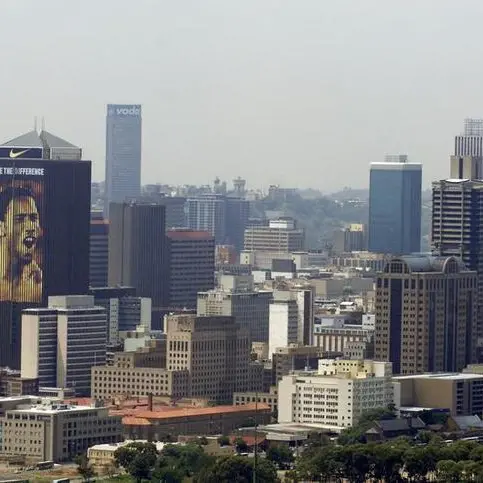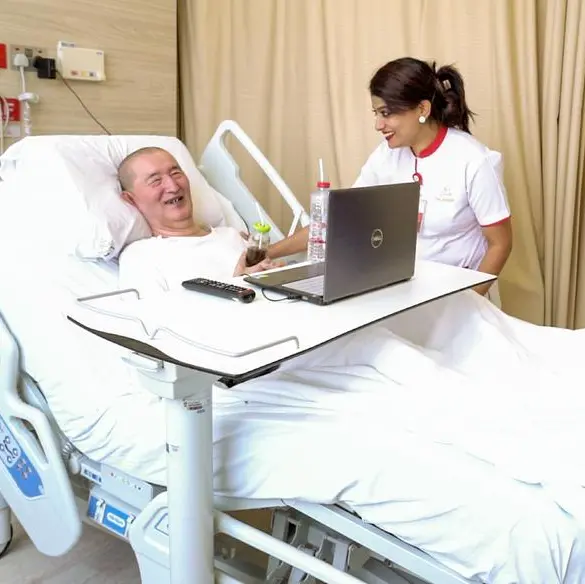PHOTO
Malaysia is steadily emerging as a preferred destination in the global medical tourism market by combining high-quality healthcare services with affordability, making it an attractive option for international patients, especially from the Middle East. At the recent Oman-Malaysia Medical Symposium, Dr Mohamed Ali Abu Bakar, CEO of Malaysia Healthcare Travel Council, highlighted Malaysia’s strategic approach to healthcare, which leverages the strengths of its private sector to deliver advanced medical treatments and technologies.
Dr Mohamed Ali Abu Bakar, CEO of Malaysian Healthcare Travel Council
Dr Abu Bakar noted that while Oman’s public healthcare system is robust, Malaysia’s private sector plays a critical role in introducing advanced technologies such as robotic surgeries and cutting-edge cancer treatments.
"Malaysia’s private healthcare sector is robust because many providers are listed companies operating internationally, allowing them to introduce innovations that elevate patient care standards,” said Dr Abu Bakar. This collaboration underscores the potential for knowledge exchange and shared advancements between Malaysia and Oman.
Expertise and global standards
Malaysia’s competitive edge lies in its specialisation in fields like cardiology, oncology, orthopedics, and fertility treatments. The National Heart Institute of Malaysia, established three decades ago, exemplifies the nation’s commitment to medical excellence and stands as one of Asia’s leading heart centers. Dr Abu Bakar emphasised that Malaysia’s focus on clinical research, particularly in cancer treatments, grants access to the latest drugs and protocols, setting it apart from other regional players.
Fertility treatments are another area where Malaysia excels, utilising advanced AI technologies to improve outcomes for patients facing complex reproductive challenges. Malaysian fertility centres are globally recognised, offering specialised treatments at competitive prices.
Cost-effectiveness: A major draw
One of Malaysia’s most significant selling points is its cost-effectiveness, particularly appealing to medical tourists from the Middle East. Medical treatments in Malaysia are priced considerably lower than in other popular destinations like Singapore and Thailand. For instance, cardiac surgery costing $110,000 in Singapore can be performed for approximately $14,000 in Malaysia. Despite the lower costs, quality remains uncompromised due to stringent government regulations overseeing medical practices and pricing.
Shaiful Anuar Mohammad, Malaysian Ambassador to Oman
Malaysia’s affordability extends beyond medical procedures, with package deals that include flights, accommodation, and treatments. Shaiful Anuar Mohammad, Malaysian Ambassador to Oman, emphasised that the Malaysian healthcare system is internationally recognised for its excellence and affordability without compromising quality. “The Ministry of Health Malaysia strictly regulates rates for healthcare treatments, ensuring services remain realistically priced,” he stated.
Expanding market presence in the Middle East
Malaysia is strategically enhancing its presence in the Middle Eastern market, with Oman identified as a key partner. Malaysian hospitals provide a culturally familiar environment for Omani patients, featuring halal-certified food, prayer facilities, and a strong emphasis on patient comfort. Collaboration with Omani authorities ensures that Omani patients can access advanced treatments at affordable prices, bolstering Malaysia’s position as a preferred healthcare destination.
“The expected increase in direct flights between Oman and Malaysia will further enhance connectivity, supporting the growing demand for Malaysia’s healthcare services,” noted Dr Abu Bakar.
A global halal hub with multilingual support
Malaysia’s reputation as a global halal hub further strengthens its appeal to Muslim healthcare travelers, providing services that respect cultural and religious sensitivities. Ambassador Mohammad highlighted that “Malaysia continues to provide high-quality treatments and exceptional care with world-class healthcare facilities and medical personnel who are internationally accredited and recognised.”
He also pointed out that Malaysia’s multilingual environment, with widespread English proficiency and available translators, makes it easier for international patients to navigate their medical journeys. “Malaysians are multilingual; English is spoken widely, and translators can easily be arranged if needed,” he added.
A promising future
Malaysia’s approach to medical tourism extends beyond offering treatments; it’s about delivering a comprehensive, patient-centered experience marked by affordability, excellence, and a touch of Malaysian hospitality. With its blend of world-class medical care, regulatory oversight, and cultural sensitivity, Malaysia is poised to become a leading choice for international patients seeking high-quality, cost-effective healthcare.
As Dr Abu Bakar aptly concluded, “We don’t claim to be the best of the best. We simply want to offer a place where people can come, feel at home, and receive world-class medical care without the prohibitive costs found elsewhere.”
2022 © All right reserved for Oman Establishment for Press, Publication and Advertising (OEPPA) Provided by SyndiGate Media Inc. (Syndigate.info).





















